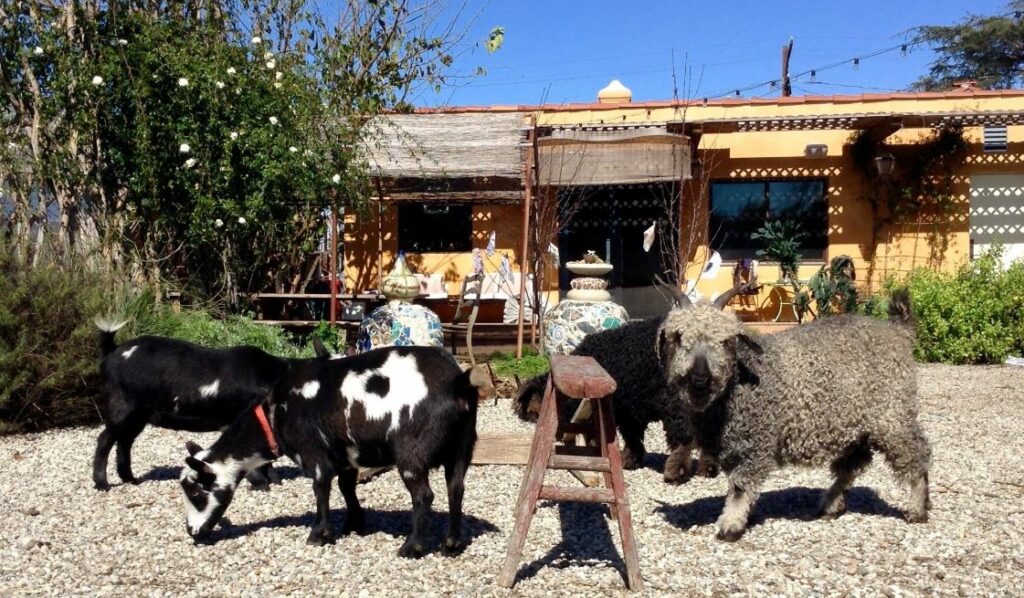Nestled within the urban sprawl of Compton, California lies a verdant oasis that defies traditional expectations of agriculture – Moonwater Farm.
This unique urban farm, spanning over an acre of land, is not merely a platform for growing crops but it is also a vibrant hub for community engagement and education.
Using sustainable farming practices and innovative techniques such as aquaponics, this agricultural wonder demonstrates how food cultivation can be seamlessly integrated into city landscapes while also fostering social connections among local residents.
Moonwater Farm’s approach to urban farming reflects an increasing global trend towards reimagining the role of agriculture in cities.
Beyond providing fresh produce directly to consumers, these innovative spaces serve as platforms for learning about nutrition and environmental sustainability.
This article will explore in depth the intricacies involved in creating and maintaining an urban farm like Moonwater – from seed selection to harvest – while also examining how this agricultural space fosters community cohesion through various initiatives.
With its commitment to sustainability and inclusivity, Moonwater Farm stands testament to what can be achieved when communities come together around shared values of healthy living and environmental stewardship.
Understanding the Farming Process
The farming process at Moonwater Farm, an intricate dance of nature and nurture, begins with the careful selection of seeds, progresses through meticulous cultivation and irrigation strategies, and culminates in a bountiful harvest that reflects the farm’s commitment to sustainable agricultural practices.
Rooted in Compton, CA., this urban oasis embraces a diverse array of crops ranging from seasonal vegetables to perennial fruit trees.
The initial phase involves choosing seeds that are resilient against disease while having the potential for high yield. Seeds are then nurtured in rich soil under controlled conditions until they sprout into seedlings ready for transplantation. This stage is crucial as it sets the foundation for plant growth and productivity.
The subsequent steps encompass a variety of farming techniques designed to optimize crop yield while maintaining ecological balance. A drip irrigation system ensures efficient water utilization, providing each plant with just enough moisture without causing waterlogging or depletion of groundwater resources. Regular monitoring helps detect any signs of pest infestation early on, enabling timely intervention using organic methods rather than resorting to harmful pesticides.
Composting serves dual purposes: recycling organic waste into nutrient-rich soil amendment while reducing landfill burden.
As autumn leaves give way to winter frost, the fruits of labor at Moonwater Farm manifest in an impressive array of fresh produce including leafy greens, juicy tomatoes, crisp apples and more – all bearing testament to their rigorous yet eco-friendly farming process.
The Role of Community Engagement in Urban Farming
Engaging local communities in urban farming practices plays a pivotal role in fostering sustainable environments and enhancing food security. This is especially true for Moonwater Farm, a remarkable urban agricultural initiative nestled in Compton, CA. The farm serves as an educational hub where community members can learn about sustainable agriculture, animal husbandry, and environmental stewardship. By cultivating partnerships with schools, local businesses, and non-profit organizations, Moonwater Farm creates opportunities for residents to participate actively in food production processes. This engagement not only contributes to the local food supply but also fosters a sense of ownership and shared responsibility among community members.
Moonwater Farm’s commitment to community engagement manifests itself through various programs aimed at empowering individuals with knowledge and skills related to urban farming. For instance, their youth programs offer hands-on experiences in farming tasks – from planting seeds to harvesting produce – thereby instilling an appreciation for the labor that goes into producing food while promoting healthier eating habits.
Similarly, workshops for adults provide training on topics like organic gardening techniques or how to raise backyard chickens; these initiatives equip residents with practical skills that they can apply directly within their own homes or neighborhood spaces. Furthermore, by hosting events such as farm-to-table dinners or harvest festivals, Moonwater Farm encourages communal gatherings around locally grown foods; these events not only celebrate the fruits of collective labor but also strengthen social ties within the community.
Through such integrated efforts towards community participation and education, Moonwater Farm exemplifies how urban farms can serve as catalysts for building resilient communities anchored on principles of sustainability and self-reliance.

